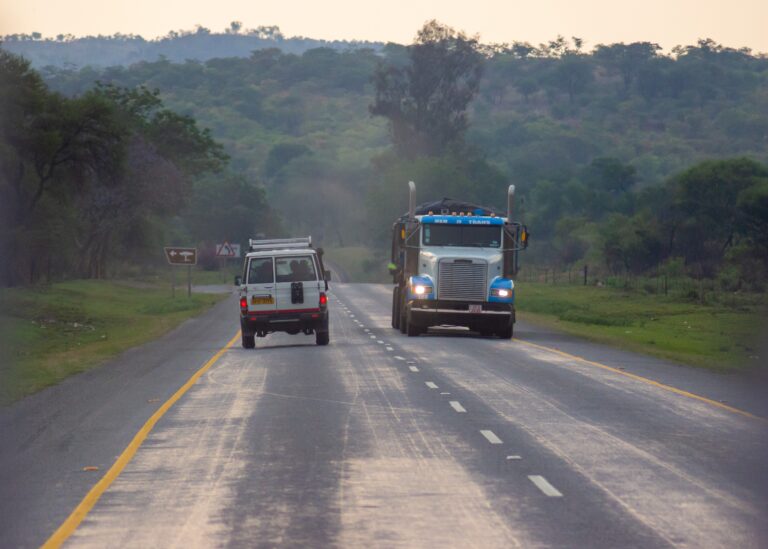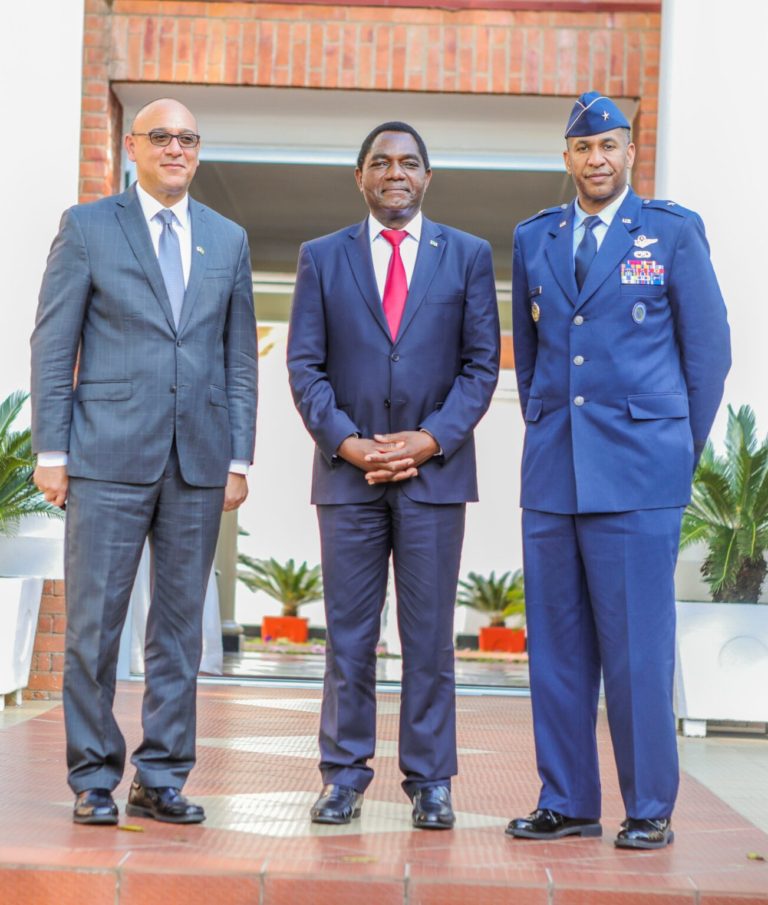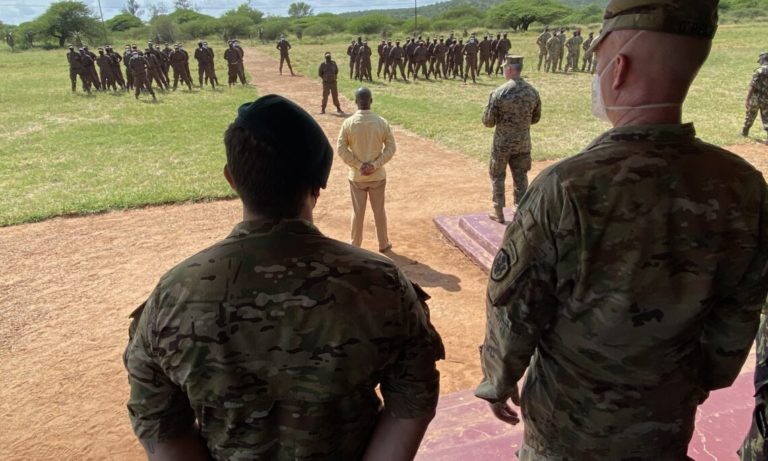The African Continental Free Trade Area (AfCFTA) is arguably the African Union’s (AU) biggest project since the launch of the continent’s Agenda 2063 in January 2015. Launched in March 2018, the AfCFTA agreement connects 55 African economies and is the largest free trade area in the world in terms of country membership.
When the AfCFTA agreement was initially proposed at an AU summit in 2012, it had two goals: to build a Pan-African agenda in trade and cooperation, and secondly, to lift a large percentage of people out of poverty by instituting structural economic changes and cooperative legislation.
AfCFTA is understood to be a groundbreaking opportunity to both create an industrial revolution within and across Africa and opt out of the types of deals like the United State’s Africa Growth Opportunities Act (AGOA) that keep the continent at the bottom of global production, trade, and investments.
But little of this has yet been achieved. The rising number of conflicts, military coups, terrorism, ethnic violence, warlordism, and the presence of mercenaries on the continent is dimming the hopes of the trade renaissance expected to have “Made in Africa” goods dominate world markets.
Hindrances to these aspirations were manifest in 2022. Libya, South Sudan, the Central African Republic (CAR), northern Mozambique, Ethiopia, and Cameroon’s north-west and south-west regions were six African conflict hotbeds that year, against expectations that the continent would silence guns by 2020. In other circumstances, democratic backsliding continues, with insurgencies, insecurity, and weak governance leading to military coups in Burkina Faso, Mali, Guinea, Niger, and Gabon, further restricting the prospects of sustainable trade practices and the successful implementation of the AfCFTA. Alongside dire humanitarian costs, the absence of peace in Africa is disrupting economic activities.
According to the Africa Center for Strategic Studies, in 2022, the number of Africans who were forcibly displaced by conflict stood at over 40 million people. An additional 3.2 million Africans have been displaced due to conflict over the past year. This is impacting Africa’s intra-trade potential.
Though it aims to provide broader and deeper economic integration across the continent as well as attract investment, boost trade, provide better jobs, reduce poverty, and increase shared prosperity, in 2022, intra-continental trade share in Africa stood at only 12 percent, compared to 47 percent in North America, 53 percent in Asia, and 69 percent in Europe. This makes Africa the only bloc with the least trade among its 55 members.
What others are doing
The EU is considered to be the most advanced model of regional economic integration. In facilitating smooth trade, the bloc identified three categories where barriers needed to be resolved: physical, technical, and fiscal.
In terms of physical barriers, the bloc acknowledges that border posts entail additional costs that pass on unnecessary delays. In the end, the countries streamlined their procedures to abolish border controls within the EU.
For other concerns about technical and fiscal barriers, what is certain for the EU bloc is that the headway made is far more comprehensive and satisfactory to member states. This explains why the EU is very actively pursuing its goal of gradual irreversible progress on a worldwide scale on how it engages other partners in trade initiatives like the EU, Chile, and the Southern Common Market (Mercosur). This has helped the group adopt positions in favor of having binding multilateral rules in relation to the facilitation of trade.
Defining trade in African terms
Dr. Levious Chiukira, an expert on trade and lecturer at the University of Zimbabwe, thinks Africans need to redefine what they term trade and highlight at what level and capacity trade should be considered as such by African businesses and entrepreneurs. He fears Africa might be defining trade on the basis of blue-chip companies that might benefit alone from the AfCFTA, as it appears to be a platform to anchor white monopoly capital while substituting home industries or backyard start-ups, which contribute more to Africa’s economy.
“We need a new discourse that redefines what we call African trade. We have allowed trade to be defined by some blue-chip companies. African trade has to be redefined because the bigger elements of our trade lie in what has been labelled informal trade, yet that is what constitutes small and medium enterprises (SMEs), cross-border trade, and backyard industries. We need to break the hegemonic definition of cross-border trade as if African trade is illegal. By calling our people informal traders, they are being illegalised and their trade is not being recognised,” said Dr. Chiukira.
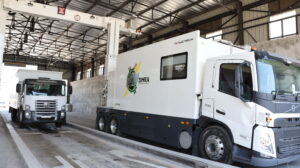
The World Bank (WB) estimates that small businesses represent 90% of all businesses and that Sub-Saharan Africa alone has 44 million SMEs. While acknowledging their importance, the WB confirms that small businesses, especially those in Africa, are poorly understood due to a lack of or fragmentation of data.
Dr. Chiukira sees infant industries or SMEs promotion in the framework of AfCFTA as only developing not on the basis of free trade policy but of understanding the needs of what facilitates African trade.
“Sustainable African trade has to be done in the precept of understanding what facilitates trade. We have failed to address the needs of the African people, and we have failed to understand the challenges of trading within Africa. Conflicts are hampering trade. In the end, human capital will not be functional as conflicts might trigger movement of refugees,” added Dr. Chiukira.
Deepening regional integration and cooperation
Regional Economic Communities (RECs) are central to the AfCFTA agreement’s implementation. However, in every REC, there are one or two cases of internal or intra-state conflicts. In the Southern African Development Community (SADC), Mozambique and the DR Congo are facing upheavals; in the East African Community (EAC), Kenya and Somalia are fighting Al-Shabaab terrorists; in the Economic Community of West African States and the Sahel, military coups, terrorism, and internal conflicts are key characteristics.
The AU and RECs have a common goal of achieving regional integration. However, little progress has been made, and one of the challenges and criticisms of the institutions’ efforts towards achieving the African integration agenda is poor coordination. Achievement or failure to achieve regional integration for the AfCFTA agenda is highly dependent on these supranational bodies.
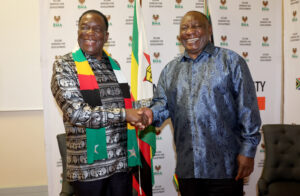
Mr. John Bosco Kalisa, the chief executive officer (CEO) of the East Africa Business Council in Tanzania, believes that promoting deeper integration through regional economic communities is a starting point to ensure the success of the AfCFTA.
The failure to silence guns is a concern.
“Every region is grappling with conflicts; these conflicts are hindering the ability of individuals and firms to produce goods and services that are required to stimulate economic growth and prosperity that are aspired to under the AfCFTA. Our leaders need to make concerted efforts to silence the guns, as espoused by the AU, the agenda of an Africa we want.
“Our African economies have been for so long depending on global supply chains, especially on essential food stuff such as rice, wheat, barley, fertilisers and others. The current Russia-Ukraine conflict which we are not party to creates negative spillover effects. This serves as a wake-up call for policymakers to design appropriate policies to build resilience within their systems and RECs,” argues Mr. Kalisa.
So near yet so far
Indications enunciated in the Agenda 2063 and AfCFTA policy documents make Africa appear as if it is progressing. To be so close and yet so far implies that in the AfCFTA agenda, policy documents, plans, and coordination may reflect as if the continent is nearing its goals, but realistically, Africa is far apart in attitudes, emotions, understanding, or meaning of the goals it wants.
“We talk of the AfCFTA, but countries that experience unconstitutional changes of government through coups or other means are automatically suspended from participating in the AU bodies, including the AfCFTA. For instance, the AU and ECOWAS closed their airspace and borders to Niger after the July military coup. Conflict resolution and prevention are essential for creating a conducive environment for trade integration and development in Africa.
“The effects of conflict can have lasting consequences on the skills, capabilities, and opportunities of the current and future generations of Africans,” says Mr. Tanatsiwa Dambuza, an intra-African trade knowledge management expert for Development Dispatch and co-founder of the Zimbabwe Institute of African Integration.
The AfCFTA project is showing signs of difficulties for the AU, and soon, without good political commitment by leaders, it will be realised soon that a miss is as good as a mile.

